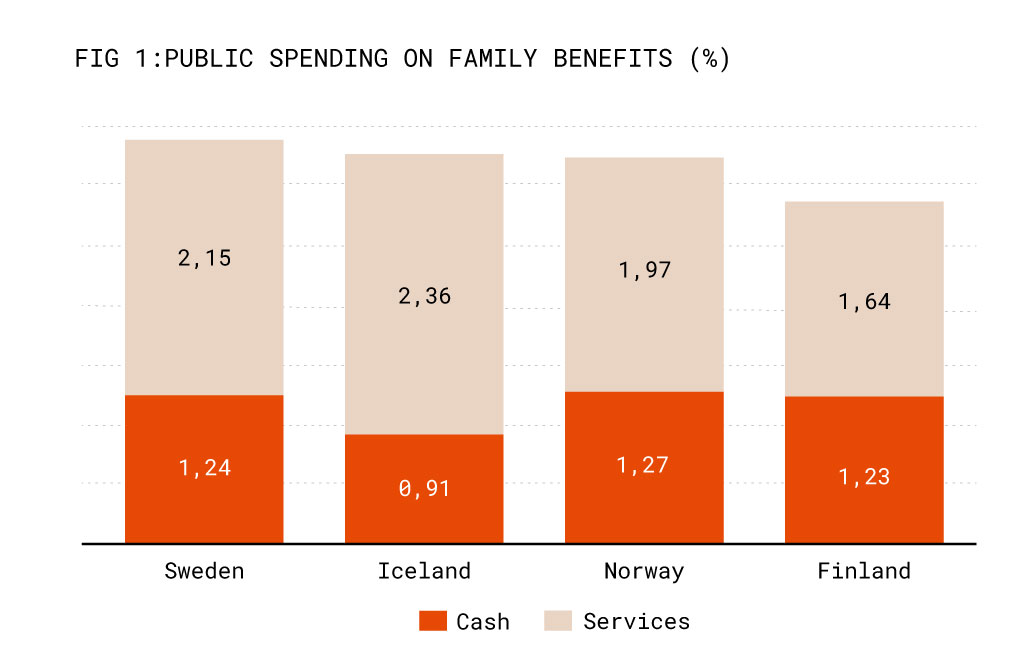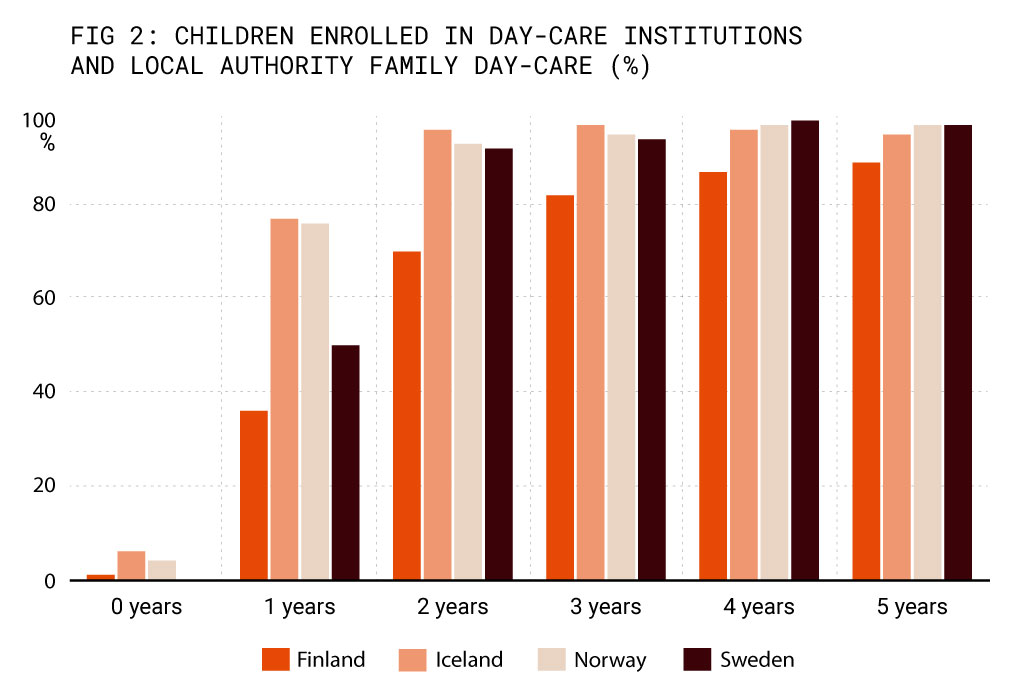The underfunding of daycare
Several news outlets have reported recently about the lack of workers and funding in daycare services in Finland. This text asks whether it makes sense for the government to spare money on this kind of expenditure? There are important aspects of this discussion like the psychological and educational effects of early childhood education that will not be discussed here. Issues in the supply of daycare services can be worrisome to parents and be a disincentive to find work or to return to the labor market, making them choose to extend their parental leave. Staying away from the labor market for too long can have detrimental effects on people’s careers, resulting in smaller future wages.
When compared to other Nordic countries(fig1), Finland spends less in relation to GDP in family benefits, 2.9%, while countries like Sweden spend 3.4% of their GDP in family benefits. Finland also spends 43% of its family benefits budget to cash transfers, the highest ratio among the selected countries. Finland also has the smallest enrollment rate of children in daycare (fig 2). Less than 40% of children at age 1. This figure goes to 70% at age 2 and goes from 82 to 89 from ages 3 to 5.
According to Statistics Finland, the Finnish government spent in 2021 3.21 billion euros (or 581 euros per capita) on early childhood and primary education. However, there is a difference between the funding of these two types of education. One parent, usually the mother, must stay out of the workforce if a child under school age stays at home. Therefore, the child enrollment in daycare has its cost offset by the tax income by their parents being able to work. Furthermore, parents that stay at home can receive parental leave benefits or home care allowance, which would increase the costs for the government and decrease the incentives for parents to return to work.
Increasing the funding for daycare services would not only benefit the children who are already enrolled, but it would also create incentives for parents to return to the labor market. This would increase the employment rate and make the economy grow. Therefore, it makes no fiscal sense to underfund daycare services. Early childhood education should be improved and expanded.


